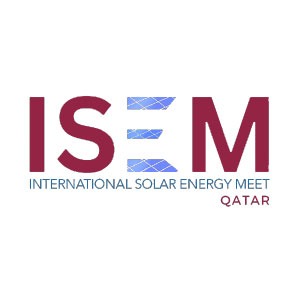- ASRY Awarded 2024 RoSPA Gold Medal in Health and Safety
- BP ponders shifting focus away from renewables, say sources
- QatarEnergy enters 10-year naphtha supply agreement with Japan’s ENEOS Corporation
- The International Energy Agency expects oil demand growth to slow in 2024
- The International Monetary Fund re-selects Kristalina Georgieva as its director
- Libya to target producing 1.4 million b/d by end 2024
- TotalEnergies launches the Marsa LNG project and deploys it multi-energy strategy in Oman
- H.E. Minister Al-Kaabi: Demand for oil and gas will continue for long; we have to be responsible, and Qatar is doing its part
- Egypt to stop exporting LNG starting from the beginning of May 2024
- QatarEnergy selects Nakilat to own and operate 25 conventional LNG vessels

OPEC Secretary General Muhammad Barkindo: “The dark clouds of the Corona epidemic are still hanging over us, compounding the human tragedy and economic uncertainty”.

A panel of the OPEC+ group was discussing some days ago the current major downside risks to oil prices, the return of oil supply from Libya and the rising coronavirus cases that threaten oil demand recovery (according to Reuters).
The Joint Technical Committee (JTC) had met via videoconference and advised the Joint Ministerial Meeting Committee (JMMC) on oil market developments.
“The dark clouds of this pandemic continue to hang over us. In some countries, a second wave is already here, compounding both the human tragedy and economic uncertainty,” OPEC Secretary General Mohammad Barkindo said at the opening statement at the JTC meeting.
OPEC’s chief reiterated the cartel’s view that the worst of the crisis is over, but said that “History has taught us that there is no end to the need for dialogue and cooperation to achieve a more sustainable and resilient energy system for the benefit of all.”
The monthly OPEC+ panel meetings come as Libya has just resumed oil production at its largest oilfield, Sharara. Libya is currently producing about 300,000 barrels per day (bpd) and Sharara could add up to 200,000 bpd more after the lifting of an oil port blockade.
The rise in Libyan supply coincides with a second wave of COVID-19 cases in many countries, with new restrictions being imposed in major economies in Europe, threatening to further derail the fragile economic and oil demand recovery.
In the UK, London and areas in the north are moving later this week to more restrictions on social gatherings indoors, including in pubs and restaurants, France is imposing curfews on nearly a third of its residents, including in Paris. Ireland and Germany also toughened restrictions.










